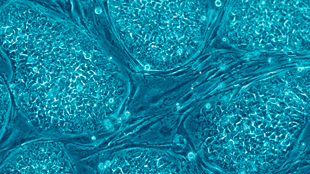Researchers have coaxed induced pluripotent stem cells (iPSCs) derived from mice to become several different cell lines and transplanted those cells into genetically identical mice without triggering a strong immune response.
The study, published this week (January 24) in Cell Stem Cell, comes hot on the heels of similar findings reported earlier this month, strengthening the case that cells generated from iPSCs could eventually be used for cell replacement therapy to treat various human diseases.
Because iPSCs can be derived from a patient’s own tissues, researchers believed that transplantation into that patient should not provoke an immune response. But in 2011, Yang Xu’s team at the University of California, San Diego, called such assumptions into question when they provided evidence that iPSCs derived from mice were attacked and rejected by the immune system when implanted into genetically identical mice.
This prompted Ashleigh Boyd and colleagues at Boston University Medical School to try a similar experiment themselves. They differentiated mouse-derived iPSCs into three different cell lines with two different methods and assessed the immune response, both in vitro and after transplantation into genetically identical mice. They found no evidence that white blood cell count increased in vitro, nor of immune rejection in the transplant experiments.
The researchers concede that the discrepancy between their results and Xu’s findings may result from transplanting the cells into different parts of the body. Nevertheless, they wrote, “our data support the idea that differentiated cells generated from autologous iPSCs could be applied for cell replacement therapy without eliciting immune rejection.”







